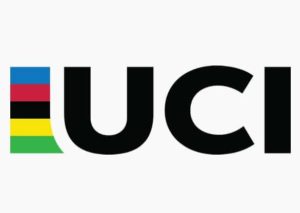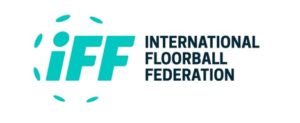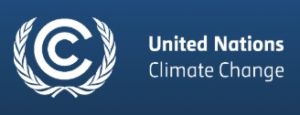
It is the UCI’s ambition to grow cycling in all forms around the world - be it for transport, recreation or competition. As part of this, we encourage and support our partners to host events that inspire the general public to cycle. The hosting of UCI sanctioned races provides an opportunity to organise side events that advocate and promote cycling beyond elite competitions. This guide provides advice on the development and hosting of Cycling for All side events, as well as practical examples of best practice.
Cycling for All side events may take various forms, depending on an organiser’s wider vision for their event.
This guide will provide case studies related to the following types of initiatives :
- Activity areas for children
- Travel by bike initiatives
- Multi-sport experience zones
- Race circuits open to the public
- Sustainability promotion and environmental campaigns
- Educational workshops
- Cycle skills training
- Closed street / car-free days
- Tourism and regional development campaigns
- Cycling festivals




UCI toolkit for national federations
Promoting and enhancing everyday cycling is a core pillar of the UCI’s strategy, striving to ensure that elite cycling acts as a catalyst to inspire even greater mass participation, and get many more people using bikes as part of their everyday lives. Be it working with cycling advocacy partners, championing local, regional, national or international cycling initiatives or supporting National Federations with their cycling promotion programmes, the UCI’s Cycling for All programme is meant to support the realisation of a more bike friendly world.
This toolkit provides practical advice and knowledge for National Federations seeking to develop their own child cycle training programmes.



International Floorball Federation’s equipment support
In cooperation with its floorball material sponsor, UNIHOC, the IFF provides floorball equipment to countries where floorball is in its early stages, and also to existing IFF Member Associations based on a needs assessment. Equipment support comes in the form of sticks, balls, goalkeeper equipment and rinks.




International Floorball Federation’s development programme
The IFF launched the Development Programme in 2005 in order to support and develop the organisation and the activities of the Member Associations. Any Member Association can apply for organising a seminar.
The IFF Floorball Development Seminar (FDS) is built on three different blocks: Organisation, Coaching, and Refereeing. Each block aims to give additional knowledge to the associations and assist them in planning and managing development in their country. The seminar is a three day event consisting of theoretical lectures, practical training sessions, group work, and hands-on training and observation. During the last years the seminars have mainly been carried out in coaching and refereeing blocks.
Here you can find the instructions and guidelines how to apply and how to organise a Floorball Development Seminar, as well as the next seminars.


The IOC is committed to building a better world through sport. As outlined in its Sustainability Strategy, which underpins to a large extent this Supplier Code, the IOC follows a responsible sourcing approach by which the sourcing of our products and services is carried out with environmental, social and ethical issues in mind. Through this approach, the IOC aims to use its influence to promote higher levels of environmental and social responsibility across its value chain.
This Supplier Code outlines the IOC’s minimal requirements from its suppliers − defined as any third party providing or intending to provide goods and services to the IOC.






The International Olympic Committee has published its Sustainability Report, tracking progress towards achieving its 18 sustainability objectives for 2020 across its three ‘spheres of responsibility’ – as an organisation, as the owner of the Olympic Games and as the leader of the Olympic Movement.
Here you can find the following elements of the IOC sustainability report







UNESCO is the United Nations Educational, Scientific and Cultural Organization. It seeks to build peace through international cooperation in Education, the Sciences and Culture. UNESCO's programmes contribute to the achievement of the Sustainable Development Goals defined in Agenda 2030, adopted by the UN General Assembly in 2015.
As a tool for aligning international and national policy in the fields of physical education, physical activity and sport with the United Nations 2030 Agenda, the Kazan Action Plan addresses the needs and objectives identified in the UN Action Plan on SDP. An integration of both these plans into a common framework is indispensable, in order to ensure enhanced coherence and synergies within the UN system, as well as a more effective mobilization of Member States and partners.
The Kazan Action Plan was adopted on 15 July 2017 by UNESCO’s Sixth International Conference of Ministers and Senior Officials Responsible for Physical Education and Sport, MINEPS VI. The text is the result of extensive consultations with UNESCO’s Member States, the Intergovernmental Committee for Physical Education and Sport (CIGEPS) and its Permanent Consultative Council, as well as other experts and practitioners in the field of physical duration, physical activity and sport policy.







The UNFCCC secretariat (UN Climate Change) is the United Nations entity tasked with supporting the global response to the threat of climate change.
UNFCCC stands for United Nations Framework Convention on Climate Change. The Convention has near universal membership (197 Parties) and is the parent treaty of the 2015 Paris Agreement. The main aim of the Paris Agreement is to keep the global average temperature rise this century as close as possible to 1.5 degrees Celsius above pre-industrial levels. The UNFCCC is also the parent treaty of the 1997 Kyoto Protocol.
The ultimate objective of all three agreements under the UNFCCC is to stabilize greenhouse gas concentrations in the atmosphere at a level that will prevent dangerous human interference with the climate system, in a time frame which allows ecosystems to adapt naturally and enables sustainable development.
Sports organizations can display climate leadership by engaging together in the climate neutrality journey. They can achieve this by taking responsibility for their climate footprint, which in turn will incentivize climate action beyond the sports sector, and therefore help global ambition step-up in the face of the threat posed by climate change.
UN Climate Change invites sports organizations and their stakeholders to join a new climate action for sport movement. This initiative aims at supporting and guiding sports actors in achieving global climate change goals.
Uniting behind a set of principles, sports organizations and their communities have created an initiative by collaborating in order to position their sector on the path of the low carbon economy that global leaders agreed on in Paris: Sports for Climate Action.
This initiative is concretized by the creation of the Sport For Climate Action Framework.




UN Climate Change invites sports organizations and their stakeholders to join a new climate action for sport movement. This initiative aims at supporting and guiding sports actors in achieving global climate change goals.
Sports organizations can display climate leadership by engaging together in the climate neutrality journey. They can achieve this by taking responsibility for their climate footprint, which in turn will incentivize climate action beyond the sports sector, and therefore help global ambition step-up in the face of the threat posed by climate change.
Uniting behind a set of principles, sports organizations and their communities have created an initiative by collaborating in order to position their sector on the path of the low carbon economy that global leaders agreed on in Paris: Sports for Climate Action
UN Climate Change welcomes the leadership of the International Olympic Committee in contributing to key areas of action within this movement, and invites other governing bodies, sport federations, leagues and clubs, to join and jointly develop the climate action agenda in sports, by leading and supporting specific working groups and by bringing their expertise, tools and best practices into this framework.
As of June 2020, more than 130 sports federations, clubs and other stakeholders signed the Sports for Climate Action Framework. Click here to see the list of signatories.




GAISF launches sustainability.sport
GAISF, supported by the International Olympic Committee (IOC), has today launched sustainability.sport, a web portal dedicated to sustainability issues such as climate change, economic […]
















